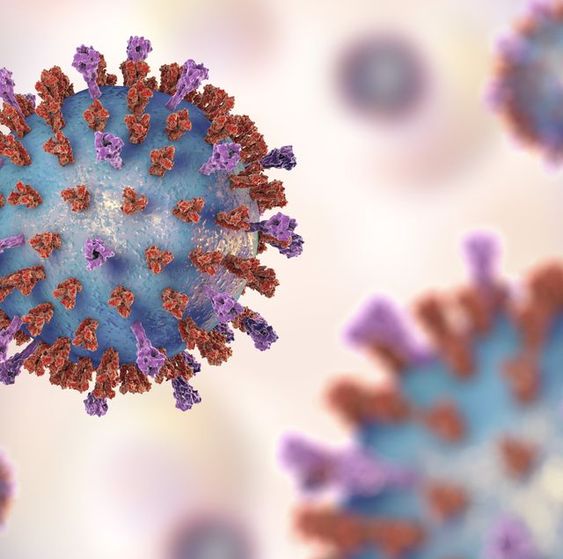Introduction:
Measles is a highly contagious respiratory infection caused by a virus. It spreads easily through the air when an infected person coughs or sneezes. Before the measles vaccine was introduced in 1963, it was a common childhood illness. Today, thanks to widespread vaccination, measles is less common. However, outbreaks still occur in communities with low vaccination rates. Measles can be serious, especially for young children, and can lead to complications like pneumonia, encephalitis, and death.

Recognizing the early signs of measles is crucial for seeking prompt medical attention and preventing the spread of the disease. The characteristic measles rash usually appears a few days after initial symptoms but identifying the early indicators can help in taking timely action. This article will explore the causes, symptoms, diagnosis, treatment, and prevention of measles.
What Causes Measles?
Measles is caused by the measles virus, a member of the paramyxovirus family. This virus lives in the mucus of the nose and throat of infected individuals. When someone with measles coughs or sneezes, droplets containing the virus are released into the air. These droplets can remain airborne for up to two hours, increasing the risk of transmission.
Measles is highly contagious. About 90% of unvaccinated people who are exposed to the virus will become infected.
Recognizing the Symptoms of Measles
Measles typically begins with a fever, cough, runny nose, and red, watery eyes. These symptoms usually appear about 10-14 days after exposure to the virus.
A few days later, a characteristic rash develops. This rash typically starts on the face and spreads downward to the neck, trunk, arms, and legs. The rash consists of small, red spots that may merge to form larger, flat patches.
Diagnosing and Treating Measles
Diagnosing measles usually involves a physical exam and evaluation of the patient's symptoms. The doctor will look for the characteristic measles rash and other common symptoms, such as fever, cough, and runny nose.
There is no specific treatment for measles. Treatment focuses on relieving symptoms and preventing complications. Rest, fluids, and over-the-counter fever reducers can help manage fever and discomfort. In some cases, doctors may prescribe antibiotics to prevent or treat bacterial infections.
Preventing Measles through Vaccination
The best way to prevent measles is through vaccination. The measles, mumps, and rubella (MMR) vaccine is very safe and effective. It provides lifelong protection against all three diseases. The MMR vaccine is usually given in two doses:
- The first dose is given at 12-15 months.
- The second dose is given at 4-6 years.
The MMR vaccine is recommended for all children and adults who have not been vaccinated.





